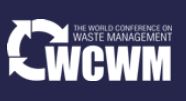Identifying Hidden Factors Affecting Household Solid Waste Generation for an Effective Waste Management System
DOI:
https://doi.org/10.17501/26510251.2019.1102Keywords:
Hidden Factors, Per Capita, Households, Solid Waste, Waste ManagementAbstract
Current urbanization, rapid economic growth and changes in the consumption pattern are burning issues faced by the developing countries on solid waste management. Proper solid waste management should be implemented with the urbanization in order to manage the households’ waste generation. There should be proper solid waste management strategies and techniques within the micro level. Identifying households’ hidden factors affecting towards waste generation in households led the foundation to develop an accurate waste management system. The study was administrated in the Colombo district using 335 households taken from Maharagama Urban Council and Kotikawatta-Mulleriyawa Pradeshiya Sabha. Solid waste generation in the household based on the low, middle and high income level was 0.12 Kg/person/day, 0.17 Kg/person/day and 0.25 Kg/person/day. The study found that hidden factors for waste generation in households were family consumption pattern, family background, nature of the waste collection and ways of treating waste. Recognizing the opportunities and challenges within the area provides a clear path for waste management.
Downloads
References
Abdoli, M.A.; Rezaei, M.; Hasanian, H., (201 6). Integrated solid waste management in megacities. Global J.Environ. Sci. Manage. 2 (3): 289-29 8
Aleluia, J. and Ferrão, P. (2016). Characterization of urban waste management practices in developing Asian countries: A new analytical framework based on waste characteristics and urban dimension. Waste Management, 58, pp.415-429.
Bandara, N. (2008). Municipal Solid Waste Management - The Sri Lankan Case. In: Conference on Developments in Forestry and Environment Management. Department of Forestry and Environmental Science, University of Sri Jayewardenepura.
Bandara, N., Hettiaratchi, J., Wirasinghe, S. and Pilapiiya, S. (2007). Relation of waste generation and composition to socio-economic factors: a case study. Environmental Monitoring and Assessment, 135(1-3), pp.31-39.
Das, S. and Bhattacharyya, B. (2014). Estimation of Municipal Solid Waste Generation and Future Trends in Greater Metropolitan Regions of Kolkata, India. Journal of Industrial Engineering and Management Innovation, 1(1), pp.31-38.
Environment Foundation (Guarantee) Limited. (2017). Status of Waste Management in Sri Lanka. [Online] Available at: https://efl.lk/status-waste-management -Sri-Lanka/ [Accessed 12 Nov. 2017].
Guerrero, L., Maas, G. and Hogland, W. (2013). Solid waste management challenges for cities in developing countries. Waste Management, 33(1), pp.220-232.
Hoornweg D, Bhada-Tata P (2012) What a waste: a global review of solid waste management. Urban development series; knowledge papers no 15 World Bank, Washington, DC.
Kawai, K. and Tasaki, T. (2015). Revisiting estimates of municipal solid waste generation per capita and their reliability. Journal of Material Cycles and Waste Management, 18(1), pp.1-13.
Klundert, A., Anschutz, J. and Scheinberg, A. (2001). Integrated sustainable waste management -a set of five tools for decision-makers - experiences from the urban waste expertise programme. Gouda: WASTE
Leblanc, R. (2018). An Introduction to Solid Waste Management. [online] The Balance Small Business. Available at: https://www.thebalancesmb.com/an-introduction-to-solid-waste-management-2878102 [Accessed 15 Mar. 2019]. .
Marshall, R. and Farahbakhsh, K. (2013). Systems approaches to integrated solid waste management in developing countries. Waste Management, 33(4), pp.988-1003.
Miezah, K., Obiri-Danso, K., Kádár, Z., Fei-Baffoe, B. and Mensah, M. (2015). Municipal solid waste characterization and quantification as a measure towards effective waste management in Ghana. Waste Management, 46, pp.15-27
Richardson, R. and Havlicek, J. (1974). An Analysis of Seasonal Household Waste Generation. Southern Journal of Agricultural Economics, 6(02), pp.143-155.
Thivyatharsan, R., Muhilini, J. and Dasinaa, S. (2016). Estimation and characterization of municipal solid waste generation in Thirukkovil Pradeshiya Sabha, Ampara District. International Journal of Multidisciplinary Studies, 3(1), pp.25-33.
U.S. Environmental Protection Agency (1976). Decision-Makers guide in solid waste management. Washington D.C.: U.S. Government Printing Office.
Downloads
Published
How to Cite
Issue
Section
License

This work is licensed under a Creative Commons Attribution 4.0 International License.







